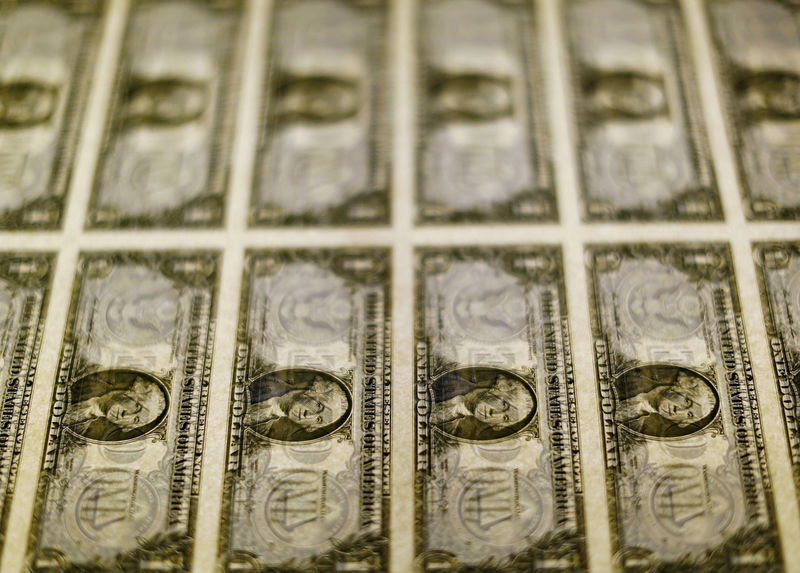Investing.com - The dollar slipped lower against the other major currencies on Tuesday, as the previous session’s disappointing U.S. data continued to weigh and as investors awaited the release of a U.S. inflation report due later in the day.
EUR/USD edged up 0.18% to 1.1018, off Monday’s more than two-month low of 1.0961.
The greenback came under pressure after data on Monday showed that U.S. industrial production increased by 0.1% last month, below expectations for a gain of 0.2%.
In addition, the Federal Reserve of New York said its Empire State manufacturing index fell to -6.80 in October from -1.99 the previous month. Analysts had expected the index to rise to 1.00.
The U.S. dollar was also hit after Federal Reserve Vice Chairman Stanley Fischer said on Monday that economic stability could be threatened by low interest rates, but it was "not that simple" for the Fed to raise rates.
GBP/USD climbed 0.46% to 1.2239 after the U.K. Office for National Statistics said consumer price inflation rose by an annualized rate of 1.0% last month, above forecasts for a 0.9% gain and compared to the 0.6% increase seen in August. That was its highest level since November 2014.
Month-over-month, consumer prices rose 0.2% in September, compared to expectations for a 0.1% advance.
Core CPI, which excludes food, energy, alcohol, and tobacco costs rose 1.5% last month above forecasts for a gain of 1.4% and compared to the 1.3% advance in August.
USD/JPY added 0.14% to 104.04, while USD/CHF slipped 0.13% to 0.9880.
The Australian and New Zealand dollars were stronger, with AUD/USD up 0.66% at 0.7680 and with NZD/USD advancing 0.83% to 0.7194.
Earlier Tuesday, Statistics New Zealand said consumer prices rose 0.2% in the third quarter, beating expectations for a flat reading and after an increase of 0.4% in the three months to June.
Meanwhile, the Aussie found support after Reserve Bank of Australia Governor Philip Lowe said he was comfortable with the current exchange rate.
In his first speech as the RBA governor, Philip Lowe also said that current low levels of inflation were not unprecedented, dampening expectations for further rate cuts.
Meanwhile, USD/CAD dropped 0.43% to trade at 1.3070.
The U.S. dollar index, which measures the greenback’s strength against a trade-weighted basket of six major currencies, was down 0.14% at 97.72, off Monday’s seven-month high of 98.15.
